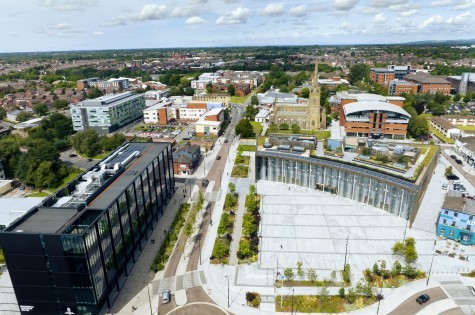On Sunday 27 July, the Whalley Artisan Market will once again transform the Swan Hotel car park into a thriving open-air marketplace.
What began as a modest celebration of local creativity has grown into a standout example of how placemaking and the maker economy can drive economic resilience and community connection in rural Lancashire.
Beyond the Stalls: Why Artisan Markets Matter
Artisan markets are more than just retail events. When done right, they become powerful platforms for small businesses, incubators for start-ups, and catalysts for community-led regeneration. In a post-pandemic world where many villages and small towns are grappling with footfall decline, rising vacancies and competition from out-of-town retail, markets like Whalley’s are breathing new life into our high streets.
The Whalley Artisan Market draws hundreds of visitors every month from across the Ribble Valley and beyond. What they come for is authenticity; hand-thrown ceramics, original artwork, small-batch preserves, naturally crafted skincare and handmade furniture, often sold directly by the people who made them.
It’s a refreshing contrast to algorithm-led ecommerce. Here, human connection and storytelling are central to the experience.
The Maker Economy in Action
The majority of our stallholders are microbusinesses. Many began as side hustles or lockdown-born projects that have grown into viable enterprises. For them, markets offer low-barrier access to customers, real-time feedback, and the chance to build brand loyalty.
We’ve seen makers go from selling on a trestle table in Whalley to launching their own studios, opening shops, or scaling through wholesale deals. One example is a candle maker from Clitheroe who now employs four staff and exports across Europe. Another, a textile artist, now collaborates with interior designers in the Lake District after being spotted at one of our events.
Crafty Vintage is proud to have played a role in these journeys. But this isn't just about sentimentality — it’s economics. According to research by the Centre for Local Economic Strategies, for every £1 spent with a local business, up to 70p stays in the local area. In contrast, spending the same amount with a national chain sees that number drop to around 40p.
Multiply this by hundreds of transactions, and it becomes clear that events like these are engines of local economic growth.
Collaboration with Local Business
Markets only work when they are part of the local fabric,not separate from it. That’s why we work closely with Whalley’s existing businesses to ensure the event supports, rather than competes with, them.
Brunch at Vault Bar & Kitchen, a drink in the Whalley Wine Bar, dinner from King Street Kitchen, or a late lunch at Deux Amis are all part of the wider visitor experience. Independents like The Dog Inn, Fifty9 Bar, and The DeLacy Arms regularly report uplift in trade on market days. It’s proof that well-curated events can bring people into the village, not just for a one-off visit but to explore and return.
This is economic development from the ground up; human-centred, localised and effective.
Placemaking in Practice
There’s a wider placemaking strategy at play too. Whalley Artisan Market sits within walking distance of key attractions: the historic Whalley Abbey, riverside footpaths, and Spring Wood. For visitors, the combination of curated shopping, hospitality and nature makes for a well-rounded experience.
From a policy perspective, this is exactly what national and regional strategies call for. Liveable, attractive places that blend heritage, creativity and sustainability. It’s how we futureproof high streets and protect our villages from becoming commuter dormitories.
The Future of Artisan Markets in Lancashire
As co-founders of Crafty Vintage, we’ve spent the last 15 years bringing markets and festivals to heritage venues and town centres across the North West. From Waddow Hall to Hoghton Tower, Holmes Mill to Darwen’s Christmas Lights, we’ve seen the transformative power of events that are both commercially viable and culturally rich.
We now believe it’s time for artisan markets to be taken more seriously as part of Lancashire’s economic toolkit.
This means better support for emerging makers. More collaborative planning between event organisers and councils. Simplified licensing and less red tape. And recognition of the vital role these events play in supporting jobs, wellbeing and rural economies.
At a time when Lancashire is reimagining its place in the wider North West economy, small ideas, like a village market, can have big consequences.




















